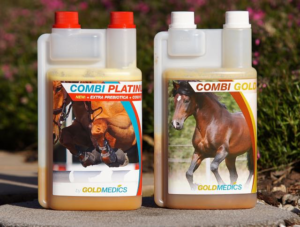Horse colic is defined as intestinal pain, but it is a clinical symptom rather than a diagnosis. The term colic can include all forms of gastrointestinal conditions that cause pain, as well as other causes of abdominal pain that do not involve the gastrointestinal tract. The most common forms of colic are gastrointestinal in nature and usually related to a disturbance of the colon. There are several causes of colic, some of which can be fatal without surgery. Colic is the leading cause of premature death in horses. Clinical signs of colic typically require veterinary treatment. After all, the conditions that cause colic can become life-threatening in a short time.
There are several forms of colic:
excessive gas build-up in the gut (gas colic)
simple obstruction
strangling obstruction
non strangulation infarct
inflammation of the gastrointestinal tract (enteritis, colitis) or the peritoneum (peritonitis)
ulceration of the gastrointestinal mucosa
However, as mentioned, the gastrointestinal disorders are the most important and the linear relationship between the amount of concentrates and the occurrence of colic should be noted. In one study, 100 horses were followed up on a yearly basis that were fed different rations. If no grain or kibble is given, there was a 1 in 250 chance of colic. With grains, it quickly goes to 1 in 15; and if you had to look at this on 10 years, it is 1 on 2; so 50% chance!! Also read our information sheet on horse nutrition.
 It is clear that in general a better quality of the gut microbiome will decrease the risk and severity of colic. Prebiotics are an extremely suitable support for this. Also read the information sheet about this.
It is clear that in general a better quality of the gut microbiome will decrease the risk and severity of colic. Prebiotics are an extremely suitable support for this. Also read the information sheet about this.
